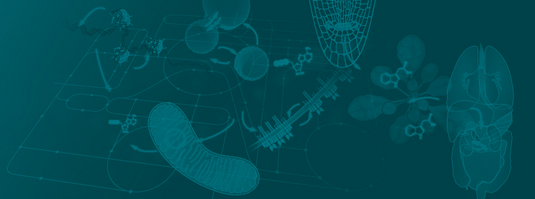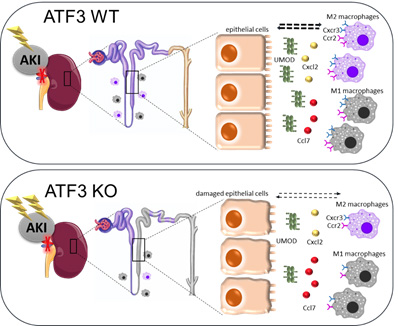Prof. Dr. Gerd Walz (CIBSS-PI), Renal Division, Department of Medicine, University Freiburg Medical Center
Kidney injury in Atf3-deficient mice is characterized by worsened renal failure, and a reduced influx of immune cells 48 hours after ischemia reperfusion injury. RNA sequencing revealed down-regulated chemokines and chemokine receptors as well as reduced uromodulin (UMOD) expression. These results suggest that ATF3 coordinates the expression of soluble factors responsible for the recruitment of immune-modulatory cells after ischemic kidney injury. ATF3 also intersects with TROP2, an adhesion molecule involved in cancer progression and metastasis. TROP2 depletion causes ATF3 accumulation and promotes epithelial-mesenchymal transition (EMT). Trop2 knockout worsens the outcome after kidney ischemia in mice similar to the knockout of Atf3. The next funding period will characterize the ATF3-controlled networks that recruit immune-modulatory cells after tissue injury, and identify the mechanisms that trigger ATF3 accumulation and EMT after loss of TROP2.






